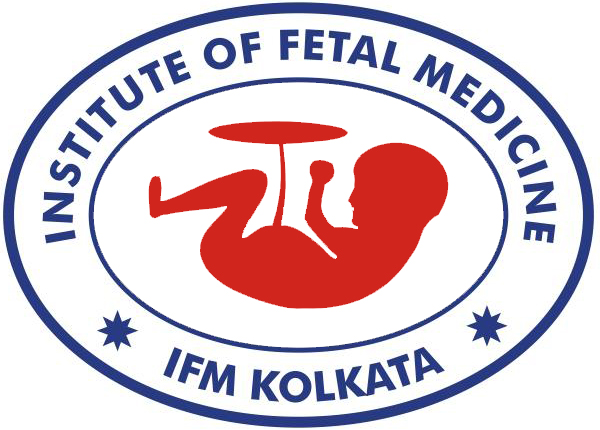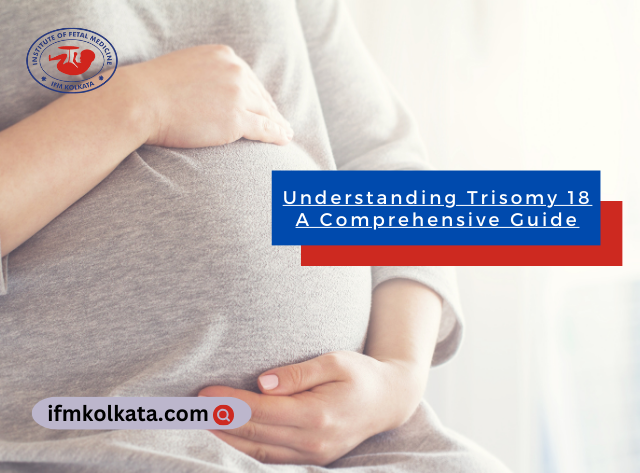Trisomy 18, also known as Edwards syndrome, is a chromosomal disorder characterized by the presence of an extra copy of chromosome 18. This additional genetic material can lead to various congenital abnormalities and serious health issues. This article will explore Trisomy 18, covering its causes, symptoms, diagnosis, management, and support options. Additionally, it will provide appointment booking details for the Institute of Fetal Medicine in Kolkata.
What is Trisomy 18?
Causes and Risk Factors
Trisomy 18, also known as Edwards syndrome, occurs as a result of an extra copy of chromosome 18 in some or all of the body’s cells. This additional genetic material disrupts normal development and leads to the characteristic features of the syndrome. While the exact cause of the extra chromosome 18 is not fully understood, it is believed to be related to errors in cell division during the formation of reproductive cells or early embryo development.
Advanced maternal age is a significant risk factor for Trisomy 18, predisposing older pregnant women to a heightened likelihood of their child being affected. Nevertheless, it’s pivotal to recognize that pregnancies at any age can potentially manifest T – 18, underscoring the importance of comprehensive prenatal screening and genetic counseling irrespective of maternal age.
In addition to maternal age, certain genetic factors may also play a role in the development of T – 18. For example, individuals with a family history of chromosomal abnormalities or genetic syndromes may have an increased risk of having a child with T – 18. Environmental factors and lifestyle choices during pregnancy are also thought to potentially influence the risk of chromosomal disorders, although more research is needed to fully understand their impact.
Overall, while the exact causes of Trisomy 18 may vary, understanding the potential risk factors can help healthcare providers identify individuals who may be at increased risk and provide appropriate genetic counseling and prenatal screening options.
Signs and Symptoms
Trisomy 18 is associated with a variety of physical and developmental abnormalities, including:
- Low birth weight
- Heart defects
- Kidney problems
- Respiratory issues
- Clenched fists with overlapping fingers
- Rocker-bottom feet
- Severe developmental delays
Diagnosis and Screening of Trisomy 18
Diagnosing Trisomy 18 typically involves prenatal screening tests followed by confirmation through diagnostic procedures like amniocentesis or chorionic villus sampling (CVS). Detecting the condition early is vital as it enables informed decision-making and ensures proper management strategies can be initiated promptly to address the condition effectively.
Management and Treatment of Trisomy 18
Prognosis and Outlook
The prognosis for individuals with Trisomy 18 varies based on the severity of their condition and accompanying medical complications. Many infants born with T-18 face significant health issues and shortened lifespans, often leading to stillbirth or neonatal death.
Coping and Support
Coping with a diagnosis of Trisomy 18 can be challenging for patients and their families. Emotional support resources, such as support groups, counseling services, and community organizations, can provide assistance and guidance throughout the journey.
Making Informed Decisions
Feeling empowered when confronted with a Trisomy 18 diagnosis is crucial for patients and families. They must navigate prenatal testing complexities, pregnancy management, and end-of-life care decisions with confidence. Upholding patient autonomy and respecting individual choices are pivotal, guiding families through informed decision-making and compassionate support. These principles ensure each family’s unique journey is honored and supported effectively.
Research and Advances
Ongoing research efforts are focused on advancing the understanding and management of Trisomy 18. Healthcare providers, staying informed, offer the most up-to-date information and support to patients and their families. This ensures they receive the best possible care aligned with current developments.
Appointment Booking Details
To book an appointment or learn more about our services, please contact us at:
📞 9830047676 | 9748480005 | 9831788538
📧 info@ifmkolkata.com
Address: 152 Shyama Prasad Mukherjee Road, at Rashbehari crossing – near Kalighat Metro gate No. 9, Kolkata 700026.
The Institute of Fetal Medicine provides comprehensive information and support to empower patients and their families facing Trisomy 18. Through this assistance, they aim to navigate the challenges with confidence and compassion.


